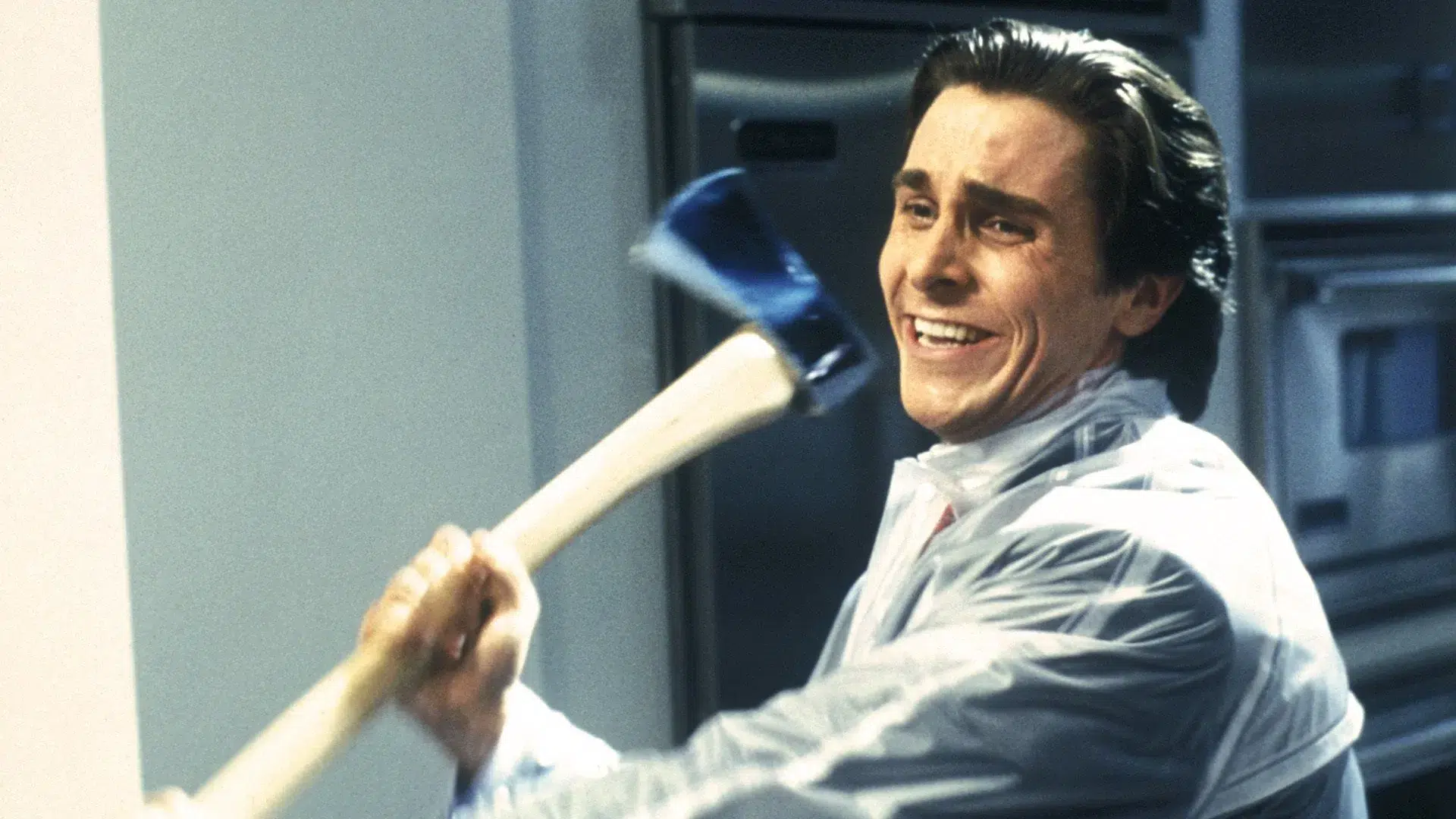Mary Harron, the acclaimed director and co-writer of the 2000 cult classic American Psycho, has shared her thoughts on the curious trend of “Wall Street bros” and other self-identified “sigma males” who embrace the film’s main character, Patrick Bateman. In a new, extensive interview, Harron expressed her bewilderment at how some men have misunderstood the movie’s satirical themes and found inspiration in its psychotic protagonist.
American Psycho, which stars Christian Bale as the wealthy, narcissistic businessman Bateman, is widely regarded as a biting critique of 1980s consumer culture, masculinity, and the moral decay of the era. However, in the years since its release, a surprising number of viewers, particularly those within the finance and corporate world, have taken to idolizing Bateman, often missing the film’s central irony.
“I’m mystified,” Harron said in a recent conversation with Letterboxd, referring to the phenomenon of “Wall Street bros” who admire Bateman. “I’m not sure why it happened because Christian is very clearly making fun of them.” The filmmaker went on to draw comparisons between the film and other works where audiences misinterpret the intentions of the creators, noting how people have taken extreme actions after misreading cultural texts.
“People read The Bible and decide they should go out and kill people. People read The Catcher in the Rye and decide to shoot the president,” she added. Harron’s comments reflect the broader tendency of some viewers to latch onto the wrong message, even when the context or subtext makes the creator’s intentions abundantly clear.
Harron, who co-wrote the film with Guinevere Turner, explained that she and Turner, who is openly gay, viewed American Psycho as a gay man’s satire of traditional masculinity. In particular, they emphasized how Bret Easton Ellis’s original novel highlighted the homoerotic undertones in the behavior of the alpha male characters, a theme that Harron and Turner were keen to explore through the film.
Harron’s interpretation draws on the idea that the hyper-competitive rituals among wealthy, powerful men—including those in Wall Street environments—are not only indicative of toxic masculinity but also reveal a certain vulnerability and insecurity that is often masked by outward appearances of strength and control. She pointed to the obsession with physical fitness and appearance, which is central to Bateman’s character, as an example of this homoerotic subtext.
“There’s something very, very gay about the way they’re fetishizing looks and the gym,” Harron remarked. “They’re so obsessed with their looks, and Bret [Easton Ellis] could see it and focus on it and underline it.”
This idea, Harron continued, ties into her broader view of male culture in American Psycho, which she likened to the behavior of teenage girls in school locker rooms. She referenced feminist icon Valerie Solanas, who famously attempted to assassinate artist Andy Warhol and who often critiqued the societal emphasis on vanity and competition. According to Harron, Solanas’s view on alpha male culture—“a reversal of alpha male culture”—resembles the dynamics of female adolescence, where insecurity, vanity, and rivalry often play out in highly performative ways.
“Men are prizing their extreme competition and their ‘elevating their prowess,’ but it’s more about insecurity and vanity and the way they gossip,” Harron explained. “The way they talk about each other is like teenage girls in a locker room at school.”
While Bateman, played by Christian Bale, is portrayed as handsome, well-dressed, and seemingly at the top of the social hierarchy, Harron insists that the character is actually depicted as “dorky and ridiculous.” She pointed to several scenes in which Bateman’s attempts to appear cool, such as his awkward references to hip-hop music in a nightclub, are played for laughs and highlight his social incompetence.
“When he’s in a nightclub and he’s trying to speak to somebody about hip hop—it’s so embarrassing when he’s trying to be cool,” Harron said, underscoring the contrast between Bateman’s outward appearance of confidence and his internal emptiness and inability to connect with others.
Despite American Psycho’s clear satirical tone, it’s become apparent that some viewers have chosen to see Bateman as an aspirational figure. This has given rise to the phenomenon of “sigma males,” a term that has gained popularity online and in self-help circles. These individuals, often associated with “alpha” male traits, pride themselves on being self-sufficient loners who reject societal norms and the expectations of traditional masculinity. They are typically portrayed as indifferent to romantic relationships and focused on personal success and productivity—values that American Psycho critiques.
According to GQ, sigma males are often characterized as “self-sufficient loners; they attract extremely good-looking women but aren’t interested in them, and they’re capitalist hustlers,” which mirrors many of Bateman’s traits. However, this interpretation of Bateman is far removed from the film’s true message, which was designed to critique exactly that type of self-obsessed, hyper-competitive mindset.
Looking ahead, Harron is curious to see how future adaptations of American Psycho might be received. Upcoming filmmaker Luca Guadagnino, known for works like Call Me by Your Name and Suspiria, is set to direct a new adaptation of Ellis’s novel. Given the ongoing trend of misinterpreting Bateman’s character, Harron wonders whether the “sigma males” who identify with the character will continue to see in Bateman what they think they see, or whether Guadagnino’s version will help clarify the satire for a new generation of viewers.
As for Harron, she remains firm in her belief that American Psycho is a film that exposes the flaws and absurdities of a certain strain of masculinity, rather than celebrating them. “It was always meant to be a satire,” she concluded. “I just hope people can eventually see it for what it really is.”
Ultimately, American Psycho endures not as a celebration of its protagonist’s behaviors but as a scathing critique of the very culture that Bateman represents—a culture that, decades later, still seems to miss the point.

